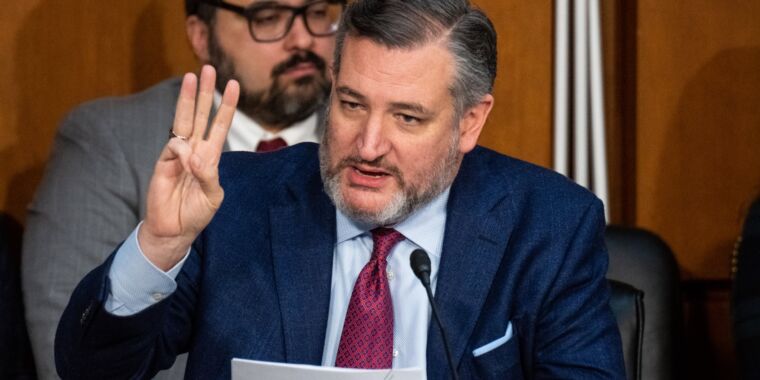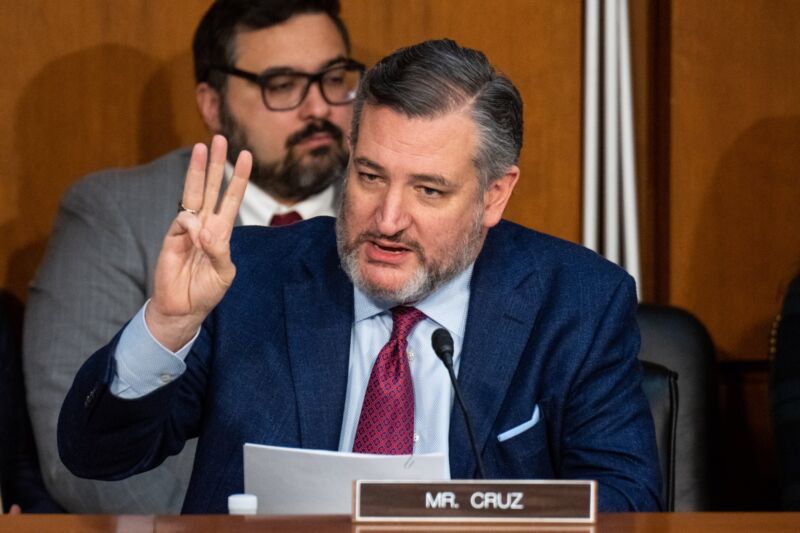ISPs say their “excellent customer service” is why users don’t switch providers
Broadband customer service
ISPs tell FCC that mistreated users would switch to one of their many other options.
Credit: Getty Images | Thamrongpat Theerathammakorn
Lobby groups for Internet service providers claim that ISPs’ customer service is so good already that the government shouldn’t consider any new regulations to mandate improvements. They also claim ISPs face so much competition that market forces require providers to treat their customers well or lose them to competitors.
Cable lobby group NCTA-The Internet & Television Association told the Federal Communications Commission in a filing that “providing high-quality products and services and a positive customer experience is a competitive necessity in today’s robust communications marketplace. To attract and retain customers, NCTA’s cable operator members continuously strive to ensure that the customer support they provide is effective and user-friendly. Given these strong marketplace imperatives, new regulations that would micromanage providers’ customer service operations are unnecessary.”
Lobby groups filed comments in response to an FCC review of customer service that was announced last month, before the presidential election. While the FCC’s current Democratic leadership is interested in regulating customer service practices, the Republicans who will soon take over opposed the inquiry.
USTelecom, which represents telcos such as AT&T and Verizon, said that “the competitive broadband marketplace leaves providers of broadband and other communications services no choice but to provide their customers with not only high-quality broadband, but also high-quality customer service.”
“If a provider fails to efficiently resolve an issue, they risk losing not only that customer—and not just for the one service, but potentially for all of the bundled services offered to that customer—but also any prospective customers that come across a negative review online. Because of this, broadband providers know that their success is dependent upon providing and maintaining excellent customer service,” USTelecom wrote.
While the FCC Notice of Inquiry said that providers should “offer live customer service representative support by phone within a reasonable timeframe,” USTelecom’s filing touted the customer service abilities of AI chatbots. “AI chat agents will only get better at addressing customers’ needs more quickly over time—and if providers fail to provide the customer service and engagement options that their customers expect and fail to resolve their customers’ concerns, they may soon find that the consumer is no longer a customer, having switched to another competitive offering,” the lobby group said.
Say what?
The lobby groups’ description may surprise the many Internet users suffering from little competition and poor customer service, such as CenturyLink users who had to go without service for over a month because of the ISP’s failure to fix outages. The FCC received very different takes on the state of ISP customer service from regulators in California and Oregon.
The Mt. Hood Cable Regulatory Commission in northwest Oregon, where Comcast is the dominant provider, told the FCC that local residents complain about automated customer service representatives; spending hours on hold while attempting to navigate automated voice systems; billing problems including “getting charged after cancelling service, unexpected price increases, and being charged for equipment that was returned,” and service not being restored quickly after outages.
The California Public Utilities Commission (CPUC) told the FCC that it performed a recent analysis finding “that only a fraction of California households enjoy access to a highly competitive market for [broadband Internet service], with only 26 percent of households having a choice between two or more broadband providers utilizing either cable modem or fiber optic technologies.” The California agency said the result “suggests that competitive forces alone are insufficient to guarantee service quality for customers who depend upon these services.”
CPUC said its current rulemaking efforts for California “will establish standards for service outages, repair response time, and access to live representatives.” The agency told the FCC that if it adopts new customer service rules for the whole US, it should “permit state and local governments to set customer service standards that exceed the adopted standards.”
People with disabilities need more help, groups say
The FCC also received a filing from several advocacy groups focused on accessibility for people with disabilities. The groups asked for rules “establishing baseline standards to ensure high-quality DVC [direct video calling for American Sign Language users] across providers, requiring accommodations for consumers returning rental equipment, and ensuring accessible cancellation processes.” The groups said that “providers should be required to maintain dedicated, well-trained accessibility teams that are easily reachable via accessible communication channels, including ASL support.”
“We strongly caution against relying solely on emerging AI technologies without mandating live customer service support,” the groups said.
The FCC’s Notice of Inquiry on customer service was approved 3–2 in a party-line vote on October 10. FCC Chairwoman Jessica Rosenworcel said that hundreds of thousands of customers file complaints each year “because they have run into issues cancelling their service, are saddled with unexpected charges, are upset by unexplained outages, and are frustrated with billing issues they have not been able to resolve on their own. Many describe being stuck in ‘doom loops’ that make it difficult to get a real person on the line to help with service that needs repair or to address charges they believe are a mistake.”
If the FCC leadership wasn’t changing hands, the Notice of Inquiry could be the first step toward a rulemaking. “We cannot ignore these complaints, especially not when we know that it is possible to do better… We want to help improve the customer experience, understand what tools we have to do so, and what gaps there may be in the law that prevent consumers from having the ability to resolve routine problems quickly, simply, and easily,” Rosenworcel said.
ISPs have a friend in Trump admin
But the proceeding won’t go any further under incoming Chairman Brendan Carr, a Republican chosen by President-elect Donald Trump. Carr dissented from the Notice of Inquiry, saying that the potential actions explored by the FCC exceed its authority and that the topic should be handled instead by the Federal Trade Commission.
Carr said the FCC should work instead on “freeing up spectrum and eliminating regulatory barriers to deployment” and that the Notice of Inquiry is part of “the Biden-Harris Administration’s efforts to deflect attention away from the necessary course correction.”
Carr has made it clear that he is interested in regulating broadcast media and social networks more than the telecom companies the FCC traditionally focuses on. Carr wrote a chapter for the conservative Heritage Foundation’s Project 2025 in which he criticized the FCC for “impos[ing] heavy-handed regulation rather than relying on competition and market forces to produce optimal outcomes.”
With Carr at the helm, ISPs are likely to get what they’re asking for: No new regulations and elimination of at least some current rules. “Rather than saddling communications providers with unnecessary, unlawful, and potentially harmful regulation, the Commission should encourage the pro-consumer benefits of competition by reducing the regulatory burdens and disparities that are currently unfairly skewing the marketplace,” the NCTA told the FCC, arguing that cable companies face more onerous regulations than other communications providers.
ISPs say their “excellent customer service” is why users don’t switch providers Read More »







